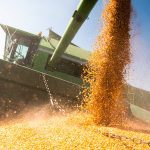SOYBEAN futures at the Chicago Board of Trade were narrowly mixed at the Wednesday’s close, holding near three-month highs. WHEAT futures corrected higher amid ideas recent losses were overdone. CORN futures were up in sympathy with wheat, with positioning ahead of the U.S. Department of Agriculture’s Ag Outlook Forum a feature.









